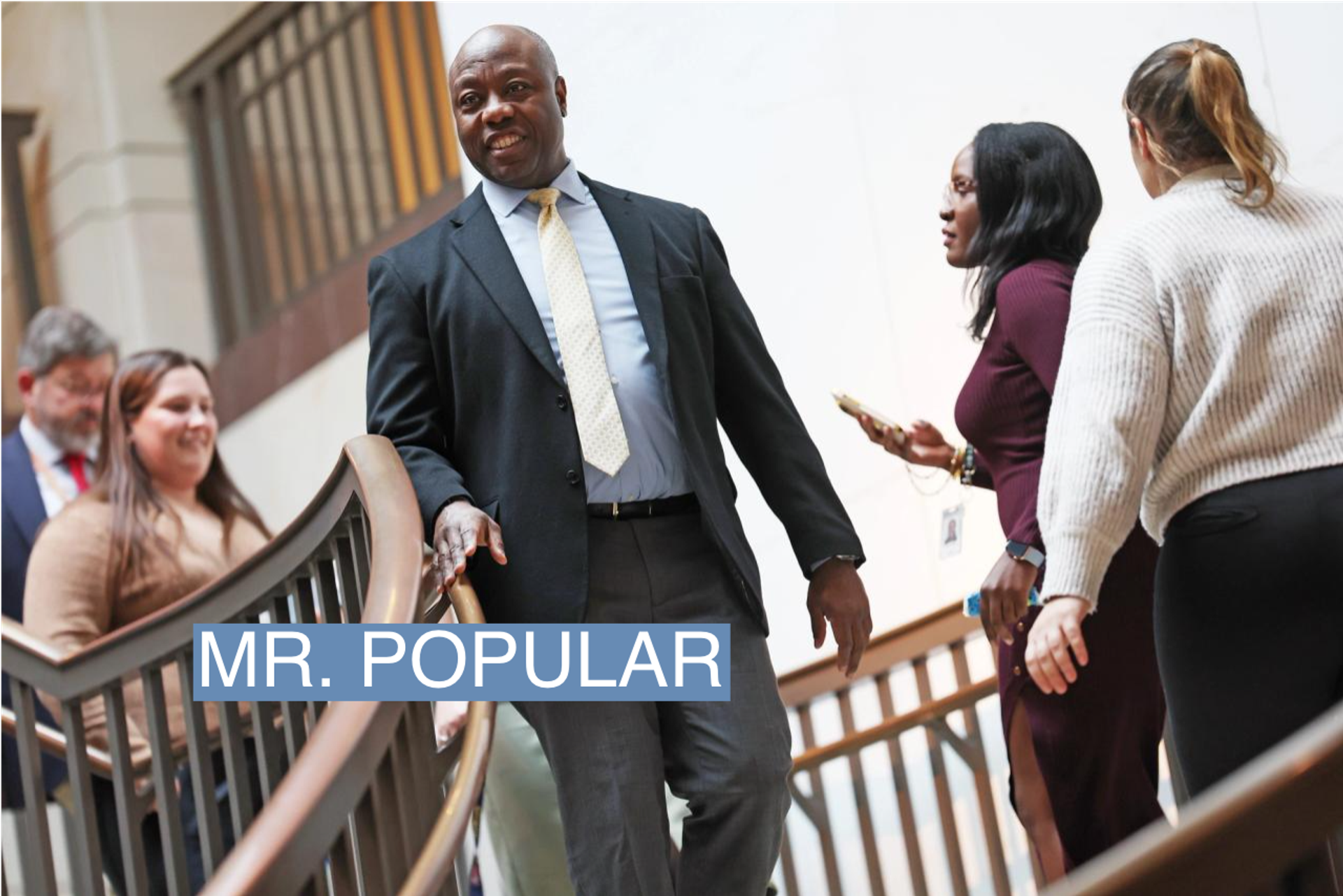The Scoop
Nikki Haley called Sen. Tim Scott on Friday seeking his endorsement, according to a source familiar with the situation — and she’s not the only candidate courting him.
The former governor texted her fellow South Carolinian after he dropped out last month as well, but did not make an explicit ask for his endorsement at that time. The new push for Scott’s backing comes as a new CBS News poll shows her surging into second place in New Hampshire, where consolidating support from independents and moderates could be critical to making the race competitive.
Donald Trump has also privately pushed Scott for his endorsement, the source told Semafor. The two have kept in touch since the senator ended his campaign –– Scott was one of the only opponents who seemed able to remain on Trump’s good side as he ran against him for office.
Chris Christie previously reached out about an endorsement, as well. Ron DeSantis, meanwhile, has been in touch with Scott too, though the exact nature of their conversation remains unclear.
Scott told Fox News in November that he didn’t plan on endorsing another Republican candidate, though some close to Scott believe he could be open to endorsing after the new year.
Representatives for the Haley, DeSantis, Trump, and Christie campaigns either declined to comment on record or did not respond, as did a spokesperson for Scott.
In this article:
Shelby’s view
Scott’s choice here could say a lot about his place within the party and future ambitions. Picking Haley, just as she’s trying to consolidate the non-MAGA vote, would send a clear message to donors, endorsers, and voters that she’s their last hope to stop Trump — and that her throwback Reaganite brand aligns more with his own. Picking Trump, however, would immediately vault Scott into the top tier of vice presidential speculation for the current runaway leader to win the nomination.
Either decision would also say a lot about how Scott might position himself in a future run in 2028 or beyond. Doing nothing might help preserve his options, but would be noted as well.
Scott, who enjoyed some of the highest favorability numbers in the Republican presidential field, including in early voting states, remains well-liked by donors, and has few enemies within any individual wing of the party. That makes him an obvious target for candidates looking to add a high-wattage ally in the home stretch.
Meanwhile, Trump asking for an endorsement isn’t entirely surprising: The former president is an avowed admirer of Scott, going so far as to warn his aides against directly attacking the lawmaker while they were running against each other. One of the things Trump is known for is his ability to network: He’s in constant communication with lawmakers, and has garnered a deep pool of allies in part because he keeps in touch with people. This sits in stark contrast to DeSantis, who faced complaints about his less friendly personality from some Florida lawmakers early on in his presidential campaign.
Scott said when he dropped out that the vice presidency “has never been on my to-do list for this campaign, and it’s certainly not there now,” but it’s hard to imagine that the offer — should it present itself — isn’t enticing. At the very least, Scott staying close with Trump leaves the door open for him to pitch himself should he decide that’s an avenue he’d like to pursue.
Room for Disagreement
High-profile endorsements have not been big vote movers in recent GOP presidential contests. Just ask Haley and Scott, who lined up behind Sen. Marco Rubio, R-Fla. in 2016 as part of an unsuccessful effort to stop Trump in South Carolina.
Notable
Haley may see a path to victory through New Hampshire, but her opponents aren’t going to make it easy for her. Semafor’s David Weigel reports on how Chris Christie and Ron DeSantis are hoping to block her rise.
